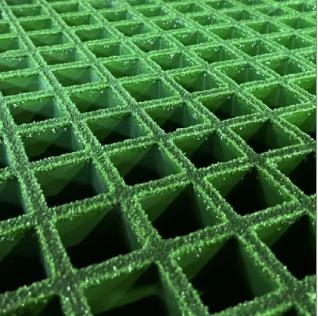loading...
- No. 9, Xingyuan South Street, Dongwaihuan Road, Zaoqiang County, Hengshui, Hebei, China
- admin@zjcomposites.com
- +86 15097380338
- Welcome to visit our website!
Effective Carbon Filter Vessel Design for Enhanced Air and Water Purification Systems
Understanding Carbon Filter Vessels Key Components and Benefits
In the realm of water and air purification, carbon filter vessels play a pivotal role in ensuring that contaminants are effectively removed, promoting cleaner and safer environments. These vessels utilize activated carbon, a material known for its exceptional adsorption properties. This article delves into the function, structure, and benefits of carbon filter vessels, showcasing their significance in various applications.
What is a Carbon Filter Vessel?
A carbon filter vessel is a container designed to hold activated carbon, which actively absorbs impurities from water or air as they pass through. These vessels are typically cylindrical in shape and constructed from durable materials, often stainless steel or high-density polyethylene, to withstand varying pressures and environmental conditions. The design allows for efficient flow rates while maximizing contact time between the contaminants and the activated carbon, enhancing the filtration process.
How Does it Work?
Activated carbon is formed from carbon-rich materials, such as wood, coal, or coconut shells, through a process of heating and steam activation. This treatment creates an extensive network of tiny pores, increasing the surface area and providing a vast capacity for adsorption. When air or water enters the carbon filter vessel, organic compounds, chemicals, and other impurities are trapped within these pores.
The effectiveness of a carbon filter vessel depends on several factors
1. Contact Time The longer the fluid is in contact with the activated carbon, the more contaminants are removed. Therefore, the design of the vessel aims to maximize this contact time without significantly slowing down the flow rate.
2. Carbon Quality The type and quality of activated carbon used can greatly influence the performance of the filter. Different grades are available for specific applications, ranging from granular activated carbon (GAC) to powdered activated carbon (PAC).
3. Pre-treatment of Water/Air In some cases, pre-treatment processes can help to reduce the load of contaminants that enter the filter, extending its lifespan and improving efficiency.
Applications of Carbon Filter Vessels
Carbon filter vessels are highly versatile and find applications in various fields
carbon filter vessel

- Water Treatment Primarily used in municipal water systems and point-of-use water filtration systems, these vessels effectively remove chlorine, sediment, volatile organic compounds (VOCs), and unpleasant tastes and odors. This leads to cleaner drinking water and improves the safety of recreational water bodies.
- Air Purification In HVAC systems, industrial air treatment, and home air purifiers, carbon filter vessels eliminate pollutants such as formaldehyde, benzene, and other harmful gases, ensuring better indoor air quality.
- Aquaculture In fish farming, carbon filters help maintain water quality by removing impurities, thus creating a healthier environment for aquatic life.
- Food and Beverage Industry Carbon filters are crucial for decolorizing and deodorizing liquids, ensuring that beverages have a consistent flavor and color without off-putting odors.
Benefits of Carbon Filter Vessels
The use of carbon filter vessels offers numerous advantages
- Effective Contaminant Removal These systems can capture a wide range of harmful substances, improving both safety and taste in drinking water and air.
- Cost-Effective While the initial investment may vary, the long-term operational costs are generally low, considering the efficiency and durability of these filters.
- Environmentally Friendly Activated carbon is a sustainable material, and using carbon filters reduces the reliance on chemical treatments.
- Versatility Their adaptability to various applications allows for widespread use across multiple industries.
Conclusion
In summary, carbon filter vessels are integral to modern filtration systems, offering reliable solutions for removing contaminants from air and water. Understanding their construction, functioning, and benefits can aid individuals and industries alike in making informed decisions about purification technologies, contributing to a healthier and safer environment. As the demand for cleaner resources continues to grow, the importance of carbon filter vessels will undoubtedly increase, solidifying their place as essential components of filtration systems worldwide.
-
GRP Structures: The Future of Lightweight, High-Performance EngineeringNewsJun.20,2025
-
FRP Water Tank: High-Performance Storage for Corrosive and Clean Water SystemsNewsJun.20,2025
-
FRP Square Tube: The New Industry Standard for Chemical and Structural ApplicationsNewsJun.20,2025
-
FRP Pultruded Profiles: The Ultimate Choice for Lightweight Structural StrengthNewsJun.20,2025
-
FRP Handrails: The Safer, Smarter, and Stronger Choice for Modern InfrastructureNewsJun.20,2025
-
FRP Grating: The Smart Solution for Durable, Lightweight Industrial FlooringNewsJun.20,2025
-
Why Choose a Galvanized Water Tank for Your Storage NeedsNewsMay.21,2025
